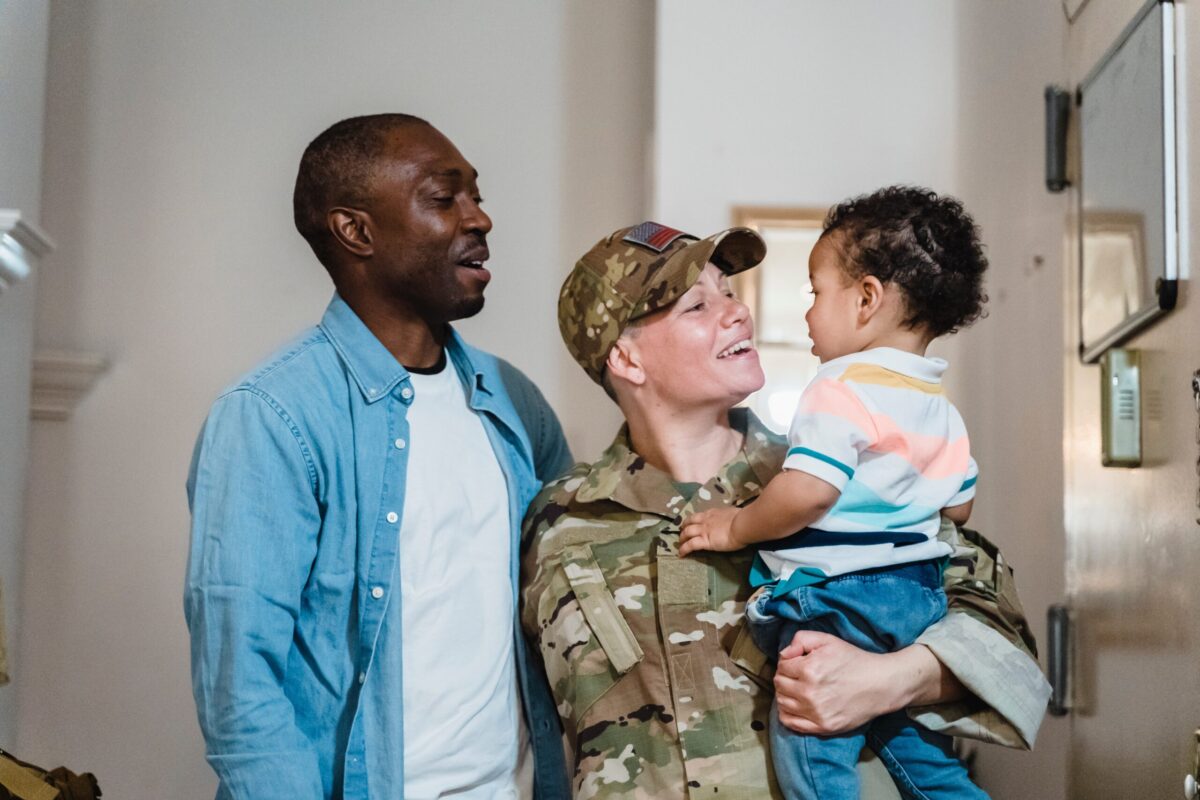Purdue Military Family Research Institute explores well-being of military, veteran families in 2022 report
Written By: Rebecca Hoffa, rhoffa@purdue.edu

From the global COVID-19 pandemic to a new White House administration, many significant events over the past two years have played a role in shaping the overall health and well-being of military and veteran families throughout the United States.
Last week, Purdue University’s Military Family Research Institute (MFRI), housed in the College of Health and Human Sciences, published its third “Measuring Our Communities: The State of Military and Veteran Families in the United States” report to reveal key findings about the current status of American military and veteran families.
Created in collaboration with subject matter experts and the Purdue Center for Regional Development, MFRI’s report spans across nine themes: demographics, community, employment, K-12 education, postsecondary education, housing, behavioral health, medical health and financial health. The report also uses available data to offer a unique section about the status of military and veteran families before and during the COVID-19 pandemic.
“We look at communities to see how they are addressing the needs of the military-connected population,” said Kathy Broniarczyk, MFRI senior director for outreach and operations. “The report relies on data from the Measuring Communities online data portal as well as data from national reports.”
According to the report’s findings, the COVID-19 pandemic exacerbated some of the challenges faced by military and veteran families. In particular, military children faced disproportionately more learning and social challenges due to school closures and virtual learning because they continued to change school districts during the early days of the pandemic. As a result, the research shows military children often were unable to connect with classmates and may have lacked the support needed to catch up academically.
Likewise, while food insecurity has been an increasingly prevalent issue among military and veteran families, it saw a greater uptick during the pandemic, especially in veteran households, resulting from amplified financial hardships.
Some challenges that have been part of continuing trends also remain, including high suicide rates and lack of access to mental health resources as well as the reduction of community services for veterans due to the shrinking population.
By reporting on these key issues, MFRI hopes to foster communities of scholars and organizations that can respond to the needs of military and veteran families nationwide.
“MFRI’s report helps put data into the hands of organizations serving this population so they can have an impact on the lives of veterans, service members and their families while expanding the ability of these organizations to maximize their work,” Broniarczyk said.
Although many challenges remain, the report also highlighted significant positive progress that has been made for military families and veterans, including a decrease in veteran homelessness, an increased sense of belonging that results from quicker military deployments, and improved employment and healthcare access among veterans.
View the complete Measuring Communities report or visit the Measuring Communities online portal to learn more about the trends surrounding military and veteran families nationwide. For those interested in free, unrestricted access to the portal, contact Katie Walter, Measuring Communities’ Purdue-based community outreach specialist, at schmit59@purdue.edu.